Lund University, Sweden
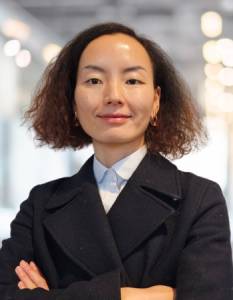
Dr. Jing Li
Dr. Jing Li is a researcher at Water Resources Engineering, Department of Building and Environmental Technology, Lund University
Dr. Li has dedicated a decade into freshwater protection and monitoring for preventing toxic algal blooms for drinking water supply and is passionate about developing smart digital tools for water resources management. She and her team make dead-data alive and integrate modelling tools into applications. She is also working on water innovations and their impact on sustainable water management, promoting open-source tools/services’ applications in research and applications. She is one of the Scientific Coordinators of Aquatic Ecosystem Services program under the Water4All framework and a board member of Nordic Association for Hydrology (NHF).
In the TwinWaters project, she is the project manager and researcher, focusing on data-driven model and processed based model for water quality modelling and scenario analysis.
Contact information: jing.li@tvrl.lth.se
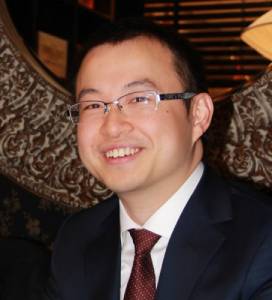
Dr. Zhanzhang Cai
Dr. Zhanzhang Cai is a researcher at the Department of Physical Geography and Ecosystem Science, Lund University
Dr. Zhanzhang Cai is a specialist in satellite remote sensing, focusing on vegetation phenology, ecosystem carbon cycle, and water quality monitoring. With a strong research background in environmental observation, Dr. Cai brings expertise in applying Earth observation data to monitor and analyse ecological and biogeochemical processes on regional to global scales.
In the TwinWaters project, Dr. Cai is responsible for delivering a water quality monitoring service using satellite-based data. This includes the development and implementation of algorithms to retrieve key water quality parameters—such as chlorophyll-a concentration, turbidity, and suspended matter—from satellite remote sensing imagery. The goal is to support timely and spatially extensive assessments of inland water conditions, enabling more informed environmental management and policy decisions.
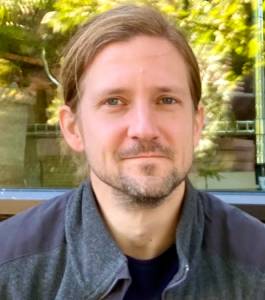
Dr. Per Wilhelmsson
Dr. Per Wilhelmsson is the chief researcher and Managing Director of PKI Utveckling AB. He holds a PhD in plant evolution and development, with a focus on plant terrestrialization and the origins of cellular life. His work also explores innovative methods for microscopic environmental monitoring.
In 2020, Dr. Wilhelmsson discovered the OpenFlexure project and has since worked to enhance how we gather data from microscopic environments. He actively promotes public, student, and teacher involvement in environmental research, aiming to bridge the gap between interest and participation. By leveraging modern technologies, he seeks to boost engagement in environmental monitoring and raise awareness of biodiversity, open science, and open hardware.
His efforts have led to numerous collaborations and initiatives with like-minded partners, including TwinWaters, fostering broader involvement in environmental and scientific exploration.
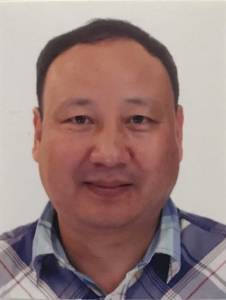
Dr. Jingjie Zhang
Dr. Jingjie Zhang is a senior expert in ecological and environmental modeling with over 25 years of experience spanning computer engineering, environmental science, and engineering. For the past 15 years, he has focused on using advanced computer models to understand and manage complex aquatic ecosystems—marine, freshwater, and coastal.
He has worked on more than 30 national and international projects, including for UNEP and in countries such as China, Denmark, Sweden, the U.S., and Singapore. His expertise includes ecological modeling, impact assessment, ecological engineering, and ecosystem restoration, with a strong emphasis on integrated catchment-scale modeling.
Dr. Zhang is also committed to education, supervising graduate students and running training programs. In the TwinWaters project, he leads the development of an integrated, AI-enhanced water quality model that supports both daily operations and long-term sustainable water management.

Dr. Christian Alsterberg
Dr. Christian Alsterberg is head of the Research and Development division at the drinking water company Sydvatten AB and an associate professor in technical water resources engineering at LTH.
He specializes in upstream work, including water measures, environmental monitoring and water quality issues related to the production of drinking water. Christian is a also appointed by the Swedish government as a delegate in the water delegation for the Water Authority of the South Baltic Sea Water District.
Christian’s role in the project is to facilitate the installation and evaluation of sensors at the water intake together with technical staff at the treatment plant as well as a representative of the industry in project related discussions.
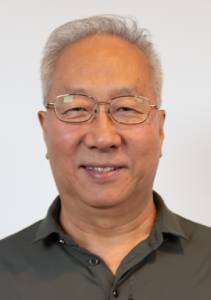
Dr. Linus Zhang
Dr. Linus Zhang is an Assoc. Prof. at Water Resources Engineering, Department of Building and Environmental Technology, Lund University
His research competences include:
Extensive expertise in hydrology and water resources engineering, supported by a solid knowledge base. Long-term experience in research and development of water resources management in both developed and developing countries. Research competencies encompass a wide range of issues in water resources and hydrology. Experience in socio-economic and stakeholder engagement: A key element in Integrated Water Resources Management (IWRM) at all levels (from local to national and international).
In the TwinWaters project, Dr. Zhang is mainly responsible for the hydrological mass balance study with hydrology and water quality aspects. This includes monitoring and sampling of water quantity and quality data; Hydroclimate and ecological modelling as well as scenario-based analyses.

Professor Kenneth M Persson
Prof. Kenneth M Persson works at both Water Resources Engineering and as a research leader at Sydvatten AB.
His research covers a broad field of specialty: Water policy development, water management and water supply, water chemistry, geochemistry, limnology, drinking water treatment, disinfection, membrane science, membrane utilization for drinking water production, solid waste management, biogas treatment, landfill leachate treatment, recycling, solid waste reuse.
In TwinWaters, his role is senior advisor.
University of the West of England, Bristol, England
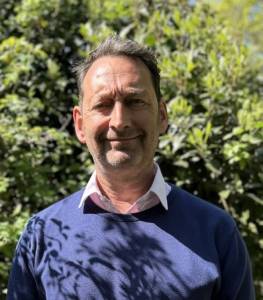
Professor Darren Reynolds
Darren Reynolds is a Professor in Health and Environment at the University of the West of England, Bristol. Darren has 25 years of experience in developing applied technology platforms at the life science/environmental/physical science interface for addressing real-world problems. His current research activities challenge the interdisciplinary cross-cutting themes associated with Health, Agri-Food, Water and Environment.
Darren works extensively with small-medium enterprises and high-technology partners that specialise in interdisciplinary science and innovation (from laboratory through to real-world application). Darren is internationally known for pioneering the use of fluorescence techniques for the characterisation of waste and surface waters and his role in the TwinWaters project is to provide new sensors for monitoring bacterial contamination and activity in freshwater sources. Dr. Reynolds is the PI for the UK team.
Contact information: Darren.Reynolds@uwe.ac.uk
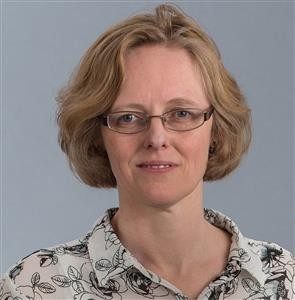
Professor Jessica Lamond
Jessica Lamond is a Professor of Real Estate and Climate Risk and Dean for Research and Enterprise in the College of Arts, Technology and Environment at the University of the West of England (UWE). Jessica specialises in mitigation of social, structural and financial risk from natural hazards and climate risk in urban areas with a particular focus on flooding. This includes aspects of property valuation and insurance, flood recovery and damage management, and the costs and benefits of adaptation for property owners and occupiers. She is an expert in sociotechnical aspects of property flood resilience (PFR), co-authoring the UK code of practice and guidance on this topic. Jessica is also an expert in community preferences and attitudes to climate risk and adaptations, including blue-green infrastructure and other flood mitigation approaches.
Her role in the TwinWaters project is to provide research expertise and support in the sociotechnical and citizen science aspects of the project.
Contact Information: Jessica.Lamond@uwe.ac.uk
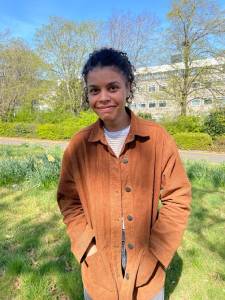
Dr. Connie Tulloch
Dr Connie Tulloch is a Post Doctoral Research Associate in Water Sciences and is currently working on a UKRI funded (NERC) project that aims to deploy new sensors capable of monitoring and detection of organic pollution from sewage. Connie has a first degree in biochemistry and expertise in the microbial colonisation of plastics during transit from the wastewater treatment plant to the marine environment, as well as a range of technical experience and skills.
Connie is a lead researcher in river water health and her role in the TwinWaters project is to provide technical and research support.
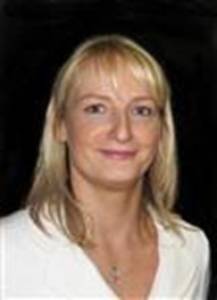
Professor Janice Kiely
Professor Janice Kiely is the co-Founder and Director of the Institute of Bio-sensing Technology (IBST) at UWE, Bristol. Her research focus is on the development of novel instrumentation for bio-sensing applications.
Janice’s role in the TwinWaters project is to provide research expertise and support the development of sensing technologies.
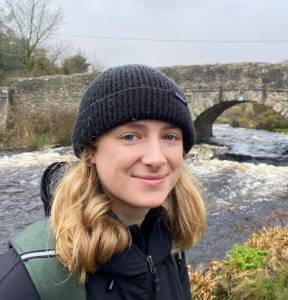
Rosie Perrett
Rosie Perrett is a Research Assistant in River Pollution currently working on a UKRI (Innovate UK) project focussed on the development on new fluorescence based sensors for monitoring river health. Rosie has a Bachelor degree in Environmental Science and a recent Masters of Research in Freshwater Microbiology from UWE, Bristol.
Rosies’ role in the TwinWaters project is to provide technical support.
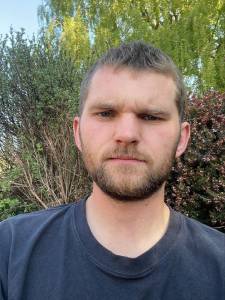
Matt Coombes
Matt Coombes is a Research Associate in Water Sciences, and is working directly on the TwinWaters project. Matt graduated in 2024 from UWE, Bristol with a Bachelors’ degree (Hons) in Environmental Science. Matt’s undergraduate project focused on the assessment of new fluorescence-based sensors for the monitoring of river health.
Matt will provide technical support for the TwinWaters project.
Wroclaw University of Life Sciences, Poland
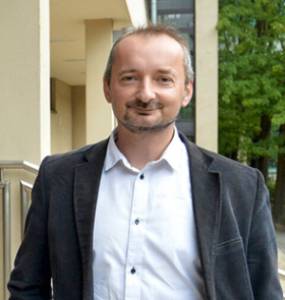
Dr. Radosław Stodolak
Radosław Stodolak, Ph.D., is a research and teaching associate at the Institute of Environmental Engineering at the Wrocław University of Environmental and Life Sciences. His scientific interests include rainfall-runoff hydrological modeling, flood protection issues and adaptation to climate change (especially the prevention of flash floods and water deficits).
His role in the TwinWaters project is to coordinate the team's work and preparation of a hydrological model for a Polish case study. Dr. Stodolak is the PI for the Polish case.
Contact information: radoslaw.stodolak@upwr.edu.pl
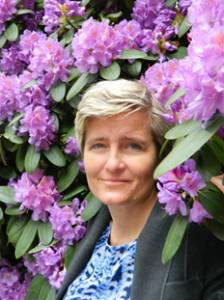
Associate Professor Ewa Burszta-Adamiak
Ewa Burszta-Adamiak, Associate Professor at UPWr, is a researcher and academic teacher at the Wrocław University of Environmental and Life Sciences. Her scientific activity is related to the sustainable management of rainwater in urban areas, with a special focus on the study of the hydrological performance of Nature-based Solutions (NbS). She is also interested in collaborating with the business community to carry out tasks aimed at improving the management of urban water resources and promoting solutions for decentralised retention and infiltration in urban areas.
Ewa will contribute knowledge of nature based solutions and prepare for metrological data for the TwinWaters project.
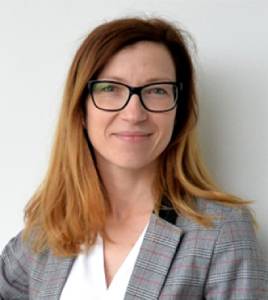
Associate Professor Katarzyna Pawęska
Katarzyna Pawęska, Ph.D., Associate Professor, is a research scientist specializing in water and wastewater treatment in natural and semi-natural systems. Her research focuses on Nature-Based Solutions (NBS), including constructed wetlands, hydroponic systems, and artificial floating islands. She is particularly interested in the treatment of wastewater with complex physicochemical compositions, as well as the quality and revitalization of urban waters. Her role in the TwinWaters project involves identifying potential pollutants entering the city moat reservoirs, as well as assessing the potential for implementing Nature-Based Solutions (NBS) to improve water quality.
Katarzyna will work with Alexsandra on water quality analysis for the TwinWaters Project.
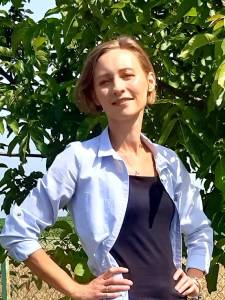
Dr. Justyna Kubicz
Dr Justyna Kubicz is a research and teaching associate at the Wrocław University of Environmental and Life Sciences. Specializing in hydrogeology, her work addresses critical challenges at the intersection of groundwater resources, environmental health and climate resilience. Her research focuses on hydrogeological drought, groundwater quality and public health risks associated with water scarcity and contamination. She investigates how prolonged droughts affect water availability and exacerbate pollution threats to water supplies. Her projects develop innovative strategies for sustainable water management.
Dr Justyna Kubicz will be active in hydrological modelling in the TwinWaters project.
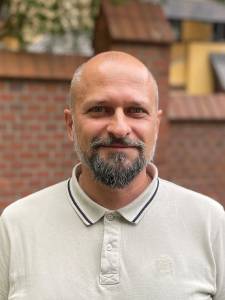
Dr. Pawel Boguslawski
Pawel Boguslawski is an Associate Professor in the Institute of Geodesy and Geoinformatics at the Wroclaw University of Environmental and Life Sciences, Poland. He has 20 years of international experience in the field of geoinformation. His research interests focus on 3D modelling, spatial analysis, data structures and information systems. He is involved in several multidisciplinary projects related to building safety, anthropogenic hazard, energy and water management. Collaboration with industry partners helps deliver practical applications and digital tools tailored to user needs.
Pawel's role in TwinWaters is related to 3D modelling, visualization and data integration. Dr. Stodolak is the CO-PI for Polish case.
Contact information: pawel.boguslawski@upwr.edu.pl
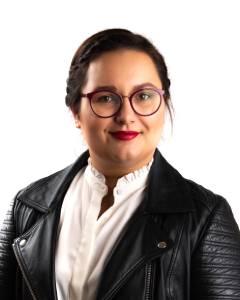
Dr. Aleksandra Bawiec
Aleksandra Bawiec, PhD, is a research scientist and academic teacher at the Institute of Environmental Engineering, Wrocław University of Environmental and Life Sciences (UPWr), Poland.
She is a scientist with several years of experience in the field of wastewater treatment using semi natural systems, more commonly known as Nature Based Solutions.
In her research, she focuses on the possibility of using macrophytes in sewage treatment processes and the use of floating wetlands for urban water quality improvement.
In the TwinWaters project Aleksandra is responsible for stakeholders engagement activities in Poland and water quality measurements.
For more information:
ORCID: 0000-0002-9952-7886
UPWr Base of Knowledge: https://tiny.pl/7ck_m8h1
email: aleksandra.bawiec@upwr.edu.pl
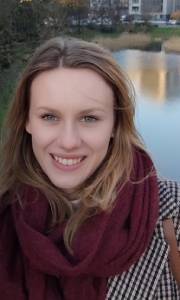
Natalia Wielgocka
Natalia Wielgocka is a PhD student at the Institute of Geodesy and Geoinformatics at Wroclaw University of Life Sciences. Her research focuses on using remote sensing data in environmental monitoring and agriculture. Her PhD is on integrating LiDAR and photogrammetric data with InSAR data to improve the accuracy of estimated land surface displacements. Her research focuses primarily on areas affected by active underground mining.
Natalia’s role in the TwinWaters project is to provide satellite data to estimate water quality indices.
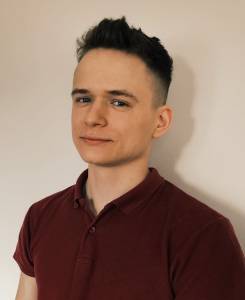
Dominik Teodorczyk
In the project, Dominik Teodorczyk serves as a geoinformatics expert in a technical-engineering role. His responsibilities focus on ensuring the consistency and compatibility of data formats between the database and the 3D web application. He is involved in programming tasks related to the processing, conversion, and organization of spatial data to ensure it can be effectively utilized within the application environment. A key aspect of the work is maintaining the integrity of data structures, their accuracy, and their seamless integration with system components. Dominik also supports the TwinWaters team in implementing solutions that enable smooth integration and real-time visualization of spatial data in a 3D interactive interface, in line with current geoinformatics standards.






